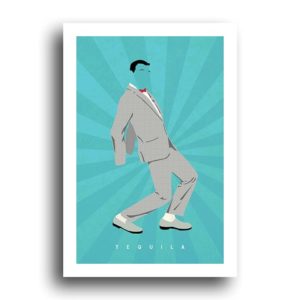Seeing as how all of your senseis (with the exception of Sensei Trish) are In our seventies, I guess that we’d be considered “elderly” or (more kindly) as kupuna these days. Nowadays, the term is often applied to anyone over a certain age (say, 65) and especially during the pandemic, you’d see “kupuna hours” at various stores. Actually, the term refers to a grandparent or other prior ancestor. Since Sensei Peter and I are indeed, grandfathers, we both qualify for the original meaning of the term.
Being so old and having grown up in the 1950’s and 1960’s, I sometimes forget that our younger students are often two or even three generations after us. This means that sometimes, the comparisons, similes, and analogies that I like to use when teaching karate can be so outdated as to lose their meaning and impact on certain demographics in our class, haha. Small wonder that I see blank faces staring back at me when I use certain sayings during class. Here are some examples and clarifications (for the kids):
– “Sometimes, I must sound like a broken record.” Kids, in case you don’t know, a phonograph record was the cassette….er, CD…er, streaming music of our day. They came as 45’s and 78’s (referring to revolutions per minute), and if it got scratched, it would get stuck on playing the same line again and again. So sounding like a broken record means that Sensei is repeating himself again.
– “Make like Ed Sullivan on your windup and like John Wayne on your block.” Kids (and younger parents as well), Ed Sullivan hosted a popular variety show that aired on Sunday nights on one of the three (only three!) major television networks available back then. Everyone used to watch it. His posture was such, that anyone impersonating him hunched their shoulders together. John Wayne was a popular, big, broad shouldered movie actor of the 30’s-60’s who was 6’4”, and walked with a distinctive swagger to his broad shoulders. When I first started teaching karate over 45 years ago, students instantly knew that I wanted them to quickly contract and open their shoulders during windup and block execution to impart maximum power to their arms/hands. Nowadays, not so much.
– “Your zenkutsu-dachi is too narrow, don’t make it like Peewee Herman.” This is reference is more recent (1980’s?) when I used to watch the comedic actor, laughing along with my children (who are now in their forties). I’m referring to the various stances that PeeWee (Actor Paul Reubens) would take when performing his Tequila dance. Typically, the stance was short, very narrow, back-weighted, and off-balance. Basically, the antithesis of what a strong zenkutsu-dachi should represent:

If used effectively, a simile can encapsulate a whole bunch of explanations into a single word or short phrase – but I suppose that the sayings need to be relevant in order to be useful. I guess that I should toss my Ed Sullivan, John Wayne, and Peewee Herman similes into the outdated bin, haha. Interestingly, this is usually not a problem if I were to use Bruce Lee references, as this legend seems to have continued relevance, till this day. A couple of examples: In Enter the Dragon, Bruce warned the board-breaking villain O’hara, “Boards don’t strike back!” and, when mentoring a student, pointed his finger at the stars and advised him, “Don’t focus on my finger or you will lose all of that heavenly glory!” Apparently, the kung fu legend also liked to use similes to “make a point”.